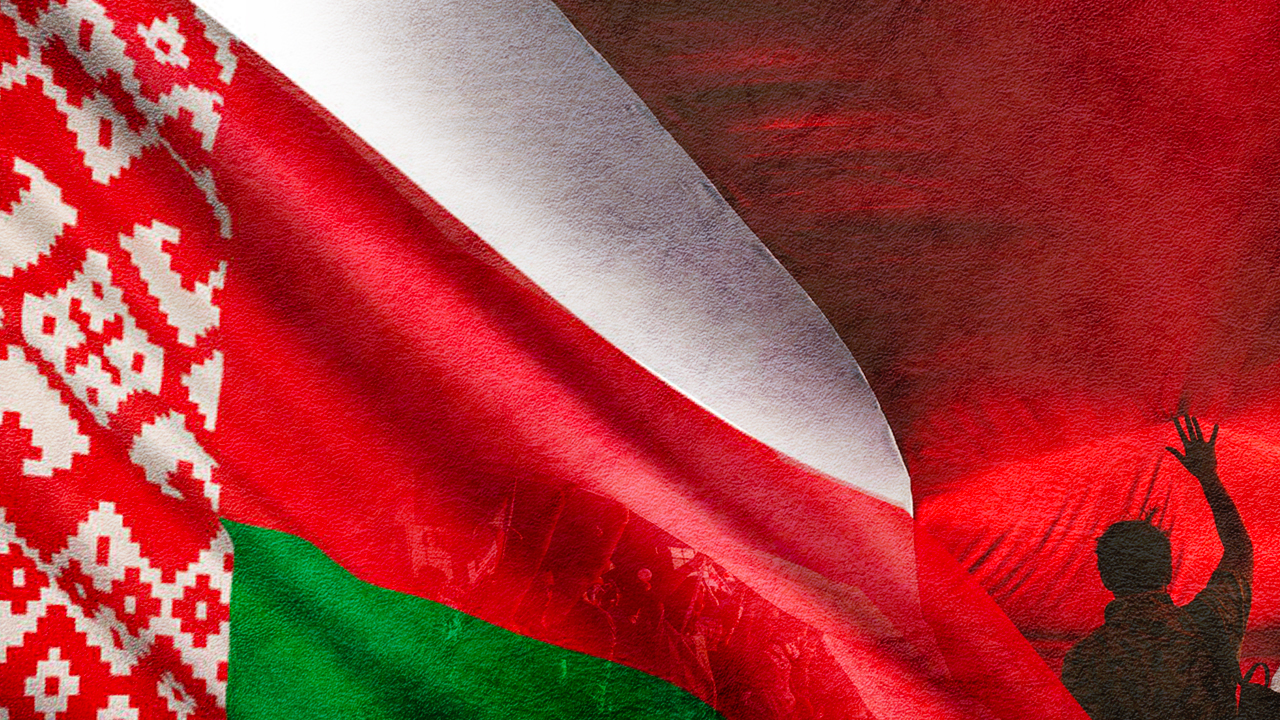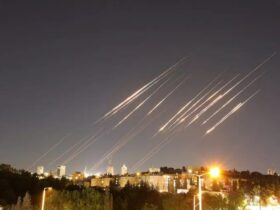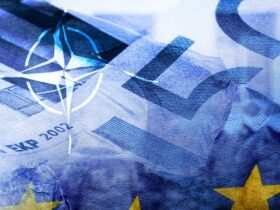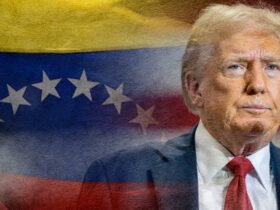The real winter, with its freezing cold weather, has finally come. Together with the freezing winter, the protests in Belarus have also frozen in place. The protests of those who do not recognize the official results of the August presidential elections still continue, but unlike the mass protests in winter when weekly protests were attended by tens of thousands of people, the protests in Belarus are now attended by very small numbers in remote districts of the capital. This apparent change can not be explained only by the icy weather; no concrete results have been achieved in these protests within five months (the protestors could not topple President Lukashenko; nor have they managed to change the elections), the interest of the masses has largely disappeared
. Another important factor is that Lukashenko, having been in power for more than 26 years, has a lot of experience in ruling the country. Consequently, he knows how to keep the control and ward of a “colour revolution” like those seen in Serbia, Georgia and Ukraine in 2000, 2003 and 2004 respectively. The state authorities arrested many of the leaders of the protests and many of them have been forced to leave the country. Of course, there are other factors which have prevented a “color revolution” in Belarus (for a comparison of Belarus and Ukraine, please look at the article of mine: Belarus is not Ukraine – A Geopolitical Comparison), but the strict control of the state authorities is perhaps central.
What does Lukashenko have on his side?
Among other important factors that helped Lukashenko avoid a revolution, we can mention existent social justice in Belarus and the loose relations of Lukashenko with the West. That is to say, Lukashenko has managed to establish a social state in Belarus after he came to power in 1996. After the volatile years of the first half of the 1990s’ when Belarus fell into economic turmoil following the collapse of the Soviet Union, economic stability and social welfare in Belarus during the rule of Lukashenko provided him a huge popular support. Even his opponents admitted that Lukashenko is supported at least by half of the population of Belarus (before the presidential elections in 2006 and 2010, the opposition leaders in Belarus were claiming that, Lukashenko would get about 50% of the votes, but he would manipulate the results by officially declaring that he got 80% of the votes. But even his opponents could not claim that he was supported by less than 50% of the voters). In addition, the turmoil in Ukraine following the revolution of 2014 (toppling of the then President of Ukraine Victor Yanukovych by pro Western forces, his escape to Russia and the subsequent annexation of Crimean Peninsula of Ukraine by Russia, the actual warfare between Russia and Ukraine, occupation of the Donbas region of Ukraine by pro-Russian armed groups and their support by Russia, thus, devastation of Ukraine following the revolution) was used successfully by Lukashenko in the past. For example, the great turmoil in Kyiv following the events in February 2014 were shown on Belarus state TV channels to show how such methods led to economic and political catastrophe in Ukraine. The propaganda was effective and many Belarussians felt great antipathy towards the events in Ukraine (I was in Belarus a year after the 2014 Revolution in Ukraine and when I asked people in Minsk what they thought about the events, most of the respondents replied that if a revolution in Belarus would look like the one in Ukraine, they don’t need change ). In a similar way, after the mass protests erupted in August 2020, the Belarus state TV channel started to show interviews with Ukrainians who had migrated to Belarus after 2014. In those interviews, the Ukranianis said to Belarusians “friends! What else do you want? Here in Belarus you have everything. We lost almost everything in Ukraine and escaped here. Do not try to make revolutions, because as a result you may lose everything you have”.
An authoritarian but fair social system
After he came to power in 1994, Lukashenko cemented his authoritarian rule step by step. Nevertheless, bearing in mind that Lukashenko at the same time created a system of social justice, he can not be classified in the same category with those dictators who live in wealthy and luxury conditions while their people suffer from poverty. During the Soviet Union, the Belarus Soviet Socialist Republic was one of the most developed constituent units of the union and this developed situation continued after the collapse of the USSR in 1991. Lukashenko, having come to power after the unsuccessful liberal economic policies of the beginning of the 90s’, re-nationalized the country’s major enterprises. The workers at these state enterprises, together with the peasants, are the two main supporter groups of Lukashenko. The economy of Belarus has been supported by Russia (by supplying cheaper oil for the oil refineries of Belarus) although in most cases Lukashenko has managed to maneuver between Russia and the West, thus resisting full incorporation of Belarus by Russia. This attitude of Lukashenko was welcomed by the West and although the EU and the US imposed sanctions on Belarus following the presidential elections in 2006 and called the regime in Belarus “the last dictatorship in Europe”, they, from time to time, preferred to ignore this “dictatorship” and suspend those sanctions in order to keep Belarus from falling into Russia’a orbit. On the other hand, Lukashenko expelled almost all of the prominent pro-Russian politics from the political scene, and remains the only person in Belarus who can cooperate with Russia.
Why has Lukashenko lost popular support?
However, the stagnation in Belarus’s economy in recent years has shrunk the president’s popular support. Moreover, the new generation in Belarus does not remember the volatile 90s’ , thus, it can not be expected from them to compare today’s relative stability and prosperity. Secondly, they have more contact with Europe and they are much more with contemporary European culture, so it is much harder to convince this new generation with the old discourse. During the Soviet rule, Lukashenko was the director of a state farm (sovkhoz) and he still has great popular support in rural areas and he had managed to conform with discourse of those rural areas. But the recent events show that he could not succeed to conform to new conditions. Thirdly, although the economic situation in Belarus is better compared with many ex-Soviet countries (including the neighbouring Ukraine), many people in Belarus now compare their country not with Ukraine but with their western neighbours, such as Lithuania and Poland. This may be one of the reasons why workers at state factories joined the protests in August, something unexpected for Lukashenko. Nonetheless, despite the fact that opponents twice attempted to organize a nation-wide strike, the attempts failed. Although many of the workers attended the demonstrations, they refused to stop production in their factories, fearing that this might damage the whole economy, including their own situation. The sanctions imposed by the EU and the US have also played no major role in changing the attitude of Lukashenko, since the economy of Belarus does not depend on the West. Instead, Belarus has much more intensive economic relations with Russia. For this reason, many opposition leaders (although many of them have pro Western orientation) have been applying to Russia with the purpose to convince Lukashenko to renew the elections.
Turbulent Relations Between With Russia
Before the presidential elections, Lukashenko had serious problems with Russia and on the eve of the elections he even accused the Russian government of organizing plots to overthrow his government. However, after the protests broke out, Lukashenko returned his face to Russia and the leaders of two countries seemed to forget about their recent problems.
From Russia’s point of view, Belarus is their only neighbour in the west with whom they do not have serious problems, just tense relations (other western neighbours of Russia, such as Estonia, Latvia, Lithuania and Poland are members of NATO and those countries have already had problems with Russia throughout the history. With Ukraine, Russia has been in a state of actual warfare for seven years). Secondly, whatever problems Russia has with Lukashenko, it would never want to see a “colour revolution” in Belarus. Those factors have brought the two leaders together.
In the past, having a great popular support, Lukashenko was able to maneuver between the West and Russia and claim that those moves reflect the will of the people (he used to say “the Belarussian people want this foreign policy, or that foreign policy”, thus, presenting himself as the representative of the whole nation). However, the mass protests of the last five months deprived Lukashenko of the possibility to speak in the name of the whole nation. Yes, his popular support is not 3% as claimed by the opposition, but it is not 80%, either. This situation makes the Belarus administration more vulnerable to the demands of Russia.
Meanwhile, Russia is also trying to convince Lukashenko to enter into dialogue with at least some of the opposition leaders and to begin political transformation. This attitude is motivated by: 1- If Lukashenko loses popular support, Russia backing him may alienate a great part of Belarussians from Russia. The demonstrations in autumn of 2020 showed how anti-Russian sentiments had grown among the opposition 2- The opposition in Belarus is not a monolithic structure: Among the opponents of Lukashenko, there are both pro-Western figures (like Svetlana Tikhanovskaya, who now lives in Lithuania and calls on Western states to impose new sanctions on Belarus) and pro-Russian figures (like Victor Babaryko and his aide Maria Kolesnikova, both of whom are now in prison). In this situation, it is important for Russia to keep good relations with the pro-Russian oriented part of the opposition. On the one hand, if a transition of power in Belarus seems inevitable, Russia would like to realize this transition by its own initiative and not to allow a “colour revolution” supported by the US and the EU. 3- The events in the last 15 years have shown that Lukashenko, despite his relatively good relations with Russia, is not a completely “reliable” partner for Russia. It is quite possible that once Lukashenko feels his position is safe, he may again try to distance himself from Russia again. For this reason, Russia does not want to let Lukashenko have full power in the country. The speeches of the President of Russia Vladimir Putin and of the Minister of Foreign Affairs Sergei Lavrov on the significance of dialogue with the opposition and a political transformation indicate this approach from the Russian administration.
The Belarussian People’s Congress
For the last two months, Lukashenko has been announcing a new constitution and a transition of power. Although he has not discussed the details, this transition includes the limitation of the power of the president. Lukashenko has been talking about a referendum, where the draft for a new constitution will be voted on. Recently he said that the referendum might be held at the end of this year. On the other hand, he has announced the convening of the Belarussian People’s Congress on February 11. The Belarussian People’s Congress is an organ which has been convening every five years since 1996. However, while at the previous congresses mainly economic issues used to be tackled, at this congress, the main issue will be the constitutional reform. The state media has announced that the participants of that congress will be the first to be acquainted with the draft of the constitutional reform. The congress will be attended by 2,700 delegates from every region of Belarus. Among the participants there will be the members of moderate oppositionists. There were rumours that Lukashenko would make a fait accomplis and get the new constitution adopted at that congress, but he has denied these rumors.
Although the friction seems to have frozen, the leaders of the opposition expect a revival of mass demonstrations by Spring. Moreover, the victory of Joe Biden in the presidential elections has given hope to the pro-Western oppositionists in Belarus, since Biden is known for his active anti-Kremlin policy in ex-Soviet countries and for his harsh criticism of Lukashenko. For those reasons, unless Lukashenko manages to come into some kind of agreement with the opposition and with the larger parts of the society, this year may see internal turmoil in Belarus and perhaps another serious confrontation between Russia and the West as a result.

















Leave a Reply